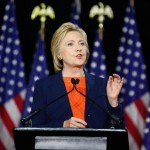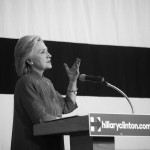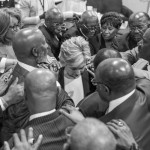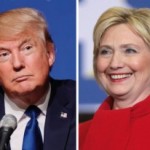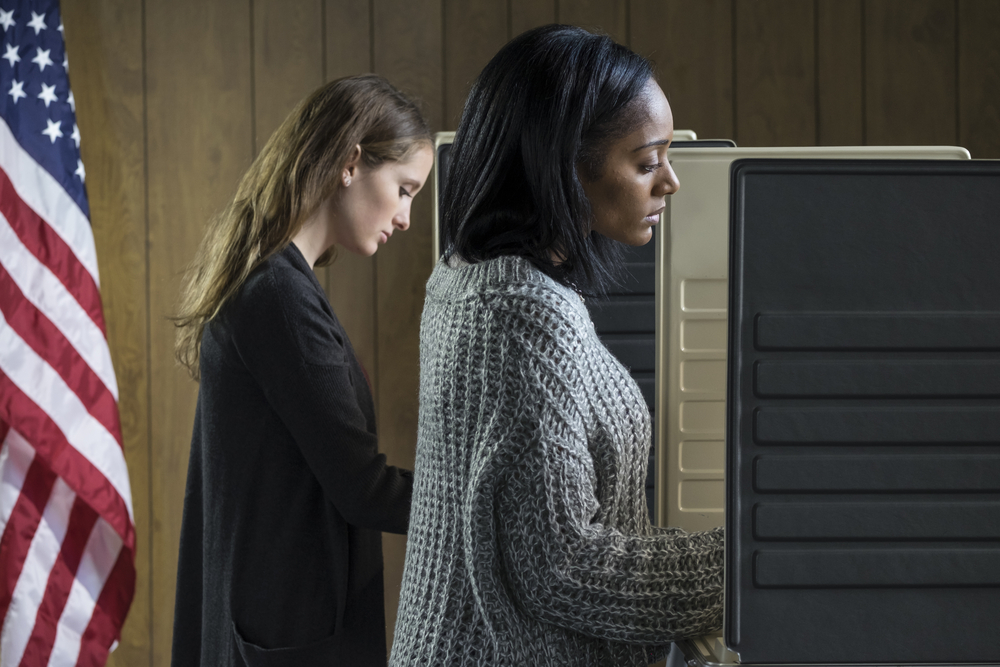
Editors’ Note: This article is part of the Patheos Public Square on Faith and the Election. Read other perspectives here.
As a Democrat, the conversation around faith and politics generally begins with a question of whether it is appropriate to combine faith in politics (with many in the room feeling the answer to that question should be “no”). But from the perspectives of honestly, inclusion, and simple strategic effectiveness, the question we need to ask is not whether the faith and politics should be brought together, but instead how best to combine them. And there have been few elections where getting the how right is both more important and carries more opportunities than this one.
But before we get to the how, let’s address the whether. Democrats have paid a heavy price at the polls–and frustrates me to no end as a Democratic strategist–when our candidates, like John Kerry did in ’04 and many have continued to do since, try to make claims that their decisions as leaders will not be influenced by their faith.
First, statements like these seem to imply that faith—which a large majority of Americans claim guides their lives—is an unworthy influence. Second, and even more damning, voters know that candidates who claim their faith will not influence their decisions are either lying or claim a faith that has no real impact on their lives or values.
Every political decision, every policy decision is a values decision. Every time a leader votes on an issue, s/he is picking one set of values over another. So if your faith has any impact on who you are and your world view, your faith will inform your values. If it doesn’t, it can’t be that important.
I am not arguing that you must have faith to have values, but with more than 4 in 5 Americans claiming to be people of faith and the vast majority of elected officials claiming a personal faith (even Donald Trump added that claim to his portfolio recently), the question we need to be asking is not whether faith and politics should influence each other but what the best way is for them to do so.
In the over 60 campaigns I’ve worked on—most including a significant focus on faith—there are two principles I have come to believe are key to both ensuring a better witness and electoral outcome: authenticity and religious humility.
You can’t fake this stuff, but you also don’t have to be a preacher’s kid to authentically engage on faith. I’ve seen a Hindu in Wichita Kansas double-down on a faith outreach program and defeat the evangelical incumbent Republican. I’ve seen pro-choice candidates carry the pro-life vote. Authenticity keeps humility from sounding wishy- washy and humility makes the authenticity more universally appealing.
For Democrats, these are vital lessons to take to heart as we look toward November, especially this November. When Hillary engages on faith, she is at her best, and all the benefits that come from opening up about something as personal as one’s faith are precisely what she needs to counter the growing sense among many voters that they can’t relate to her or know what she really believes.
One of the most important factors of this election–that has gotten surprisingly little attention by the primary-focused–media has been is massive contraction in the “God Gap” between which party faith voters are backing, which is much smaller than it has been in decades.
One of the key reasons for this is that Trump is the ideal foil for an authentic faith and values appeal. From “Two Corinthians,” to his favorite Bible verse being the “eye for an eye” verse Jesus directly repudiated, to his multiple wives and calls for harsher torture and killing women and children in families of our enemies, he is anathema to many faith voters–including a large chunk that previously made up the GOP base.
Trump says he’s never needed to ask God for forgiveness, and Hillary says she could not be where she is without having been forgiven many times and come to understand the power of forgiveness through her faith.
That’s a winning contrast, which highlights how fundamentally different the two candidates for President are. It’s also a reminder of why it is so important not to cede the definition of faith and politics in this election to those who would use it as a justification for fear and division and power.


